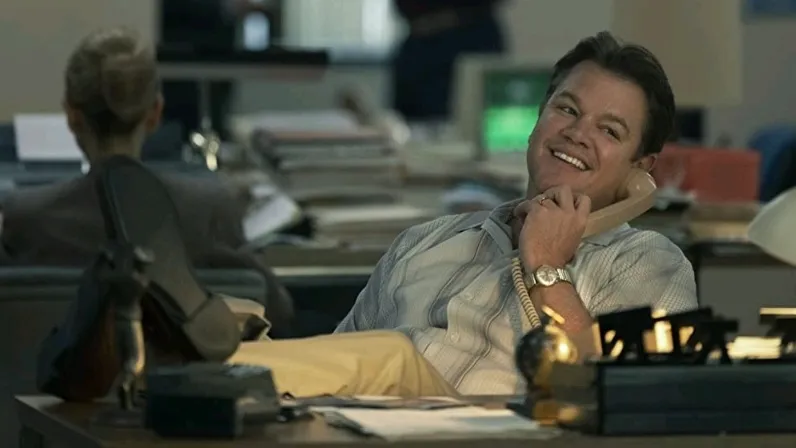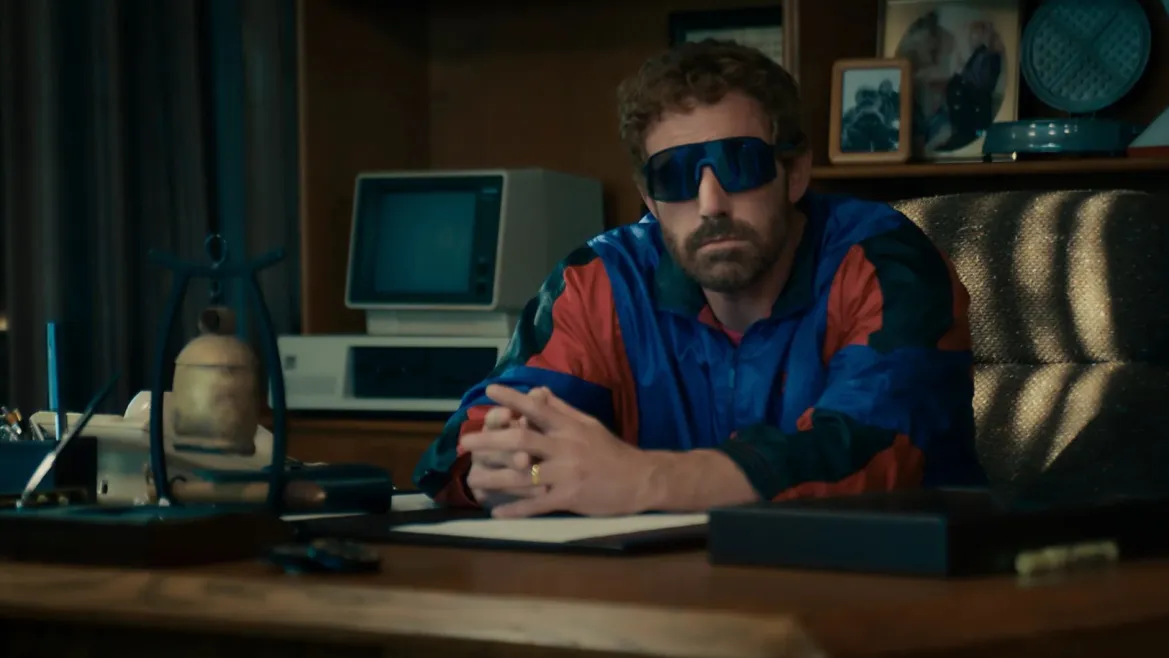Blogs
‘Air’ Review – Ben Affleck Returns to Directing with Certified Crowd
‘Air‘ Review.
It’s been a while since Ben Affleck was a film director. With Matt Damon and Nicole Holofcener, he co-wrote the screenplay for the criminally underappreciated The Last Duel, which allowed him to rekindle his creative mojo. But, he hasn’t directed a film since the critically and commercially unsuccessful Live By Night in 2016. With Matt Damon serving as both a co-producer and co-star once more, Amazon Studios’ Air appears to be Ben Affleck’s measured turn in the right direction. Air succeeds in being a crowd-pleaser that, while not very original, confirms Ben Affleck’s standing as a fine director. It is based on the fantastic accurate tale of Nike’s attempt to contract superstar athlete Michael Jordan when he was starting his professional career.
Nike is facing issues in 1984. The business is dangerously trailing market leaders Converse and Adidas in terms of market share. At the behest of co-founder Phil Knight, marketing manager Sonny Vaccaro (Damon) looks for a rising star to help the brand regain its position as a market leader (Affleck). Sonny concentrates on elusive player Michael Jordan, who seems to be becoming more and more popular. Knight rejects this suggestion because, in his opinion, both Jordan’s reward and the other opponents’ proposals are too alluring. Sonny nevertheless pursues Jordan relentlessly with the help of field representative Howard White (Chris Tucker) and marketing director Rob Strasser (Jason Bateman). Sonny must first deal with Jordan’s agent David Falk (Chris Messina), then his obstinate parents Deloris (Viola Davis), and James Jordan to obtain the man who will go down as the greatest basketball player of all time (Julius Tennon).
With infectious enthusiasm, Ben Affleck approaches the real-life narrative behind Air. With “Money for Nothing” by Dire Straits opening the movie and a montage of 1984, there is a strong sense of location and time, aided by great production design work. The Nike offices’ fluorescent lighting, which was captured by the consistently great cinematographer Robert Richardson, appears warm and inviting rather than chilly on the screen thanks to a subtle amount of film grain. This pivotal moment for Nike is given intensity by Alex Convery’s fast-talking script and William Goldberg’s sharp editing. As the stress of trying to land this basketball customer may potentially save the company, one almost forgets how the story ends.

The quality of the characters in a film like this determines whether it succeeds or fails, and Air’s cast is filled with strong ones. Sonny Vaccaro, played by Matt Damon, is driven by a single goal: creating a brand for a budding star in whom he has a sincere belief. He becomes a genuinely likable and endearing protagonist as a result of his motivation. Even whether arguing with the frugal Phil Knight, following Ben Affleck’s recent habit of delectably hamming it up in supporting roles (looking at you, The Last Duel), or Chris Messina’s obnoxious agent, Sonny bears no cynicism. Also uplifting is Sonny’s bond with Rob Strasser, played by Jason Bateman. Heartbreaking is a scenario where the two talk about the dangers of chasing Jordan without any certainties. Of course, seeing Chris Tucker on the big screen is always enjoyable. Even Marlon Wayans’ brief performance as George Raveling, Jordan’s previous Olympic coach, makes a lasting effect.
The idea of believing in oneself or another is the fundamental source of Air’s heart and soul. Sonny thinks that by putting enormous expertise behind a shoe, he can bring Nike back to its former grandeur. Michael Jordan is difficult to find because he has such a strong sense of self-worth. Yet Deloris Jordan, who Viola Davis brilliantly brings to life, firmly believes in her son’s value. The main goal of Air is to convince Deloris that Nike has the same kind of faith in her son as she does. The best sequence in the movie is when Sonny travels from the Nike headquarters in Oregon to the Jordans in North Carolina to demonstrate his high degree of faith. Sonny and Deloris wager on the specifics of how Adidas and Converse will eventually market themselves to Michael. The Jordan family requests a meeting with him if he is correct.
As Jordan finally accepts the meeting with Nike, the entire plot of Air comes to a breathless, pun-free, climax. Sonny says that Jordan’s legacy, with all of its predicted highs and lows, is more valuable to Nike than anything else in a speech that appears destined to be cut for its overwhelming power. In this sequence, Ben Affleck’s Air shows that it is not just about the creation of the Air Jordan brand but also about the growing value that players will start to place on themselves and the path towards equitable equity for talent. Because of this, Air transcends being a generic sports biopic to become a significant record of history and modern culture.
The use of Michael Jordan himself performs somewhat less well. By hiding his face save in archive footage, the man is reduced to a symbol rather than a real person. While Affleck has stated that this was an intentional directorial choice, it still feels odd when the stand-in for Jordan merely remains still in significant moments featuring him. It also verges on being self-indulgent, but with such a legendary player, it makes sense why they chose this strategy, even if it does seem a little strange at first. It does seem like a bit of a cheat that the basketball sensation himself doesn’t get a three-dimensional big-screen rendition when characters like nerdy shoe designer Peter Moore (Matthew Maher) are developed to such a good degree.
But that is irrelevant at this point. All audiences, not just basketball, and sneakerheads, will enjoy Air-like gangbusters. Ben Affleck assembles an embarrassment of talent both in front of and behind the camera, and he employs sincere thematic depth and compelling historical knowledge to transform a story about a business deal into something far more heartbreaking. This appears to be on course to unseat Ford v. Ferrari as the preferred “dad movie” of the modern era. Consider Ben Affleck’s direction of Air to be an absolute slam dunk.
SCORE: 4/5
>>>> READ MORE: Zachary Levi confirms Dwayne Johnson’s decision to axe Shazam! 2 post-credits scene.

